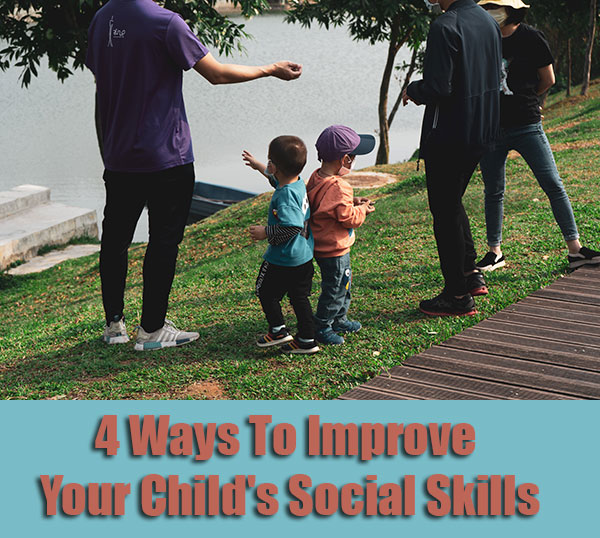Numerous children encounter some delays in their social development skills. This can frequently be attributed to shyness or the result of overprotective parenting, leading to challenges in their interactions with peers. If your child seems to be slightly off pace in their social development, the first step is not to worry. You’re certainly not alone in this. The next course of action should be focusing on enhancing your child’s basic social skills.
Self-Instruction
Often referred to as “self-talk”, self-instruction forms an essential aspect of normal development for many children. It holds considerable power when utilized by learners of any age to manage and steer their learning behavior. For instance, if a student finding it difficult to understand a complex text might think to themselves, you should look up the meanings of these unfamiliar words and revisit this page.
Students can leverage self-talk to concentrate their attention, adopt positive measures in the face of challenges, reinforce good habits, and more. While parents can demonstrate effective self-talk, they should allow their children to formulate and use their own statements.
A bit of foresight can prove beneficial in this context. Crafting the appropriate phrase on the spot when the focus is lost or frustrations are mounting may not be particularly helpful. However, dedicating some time to pen down some helpful statements prior to initiating a new project or setting out to complete a homework assignment can equip students to navigate challenging situations.
Equip Them for Advanced Social Skills
As your child matures, advanced social abilities such as negotiation, resolving conflicts, assertiveness, non-verbal communication and delivering public speeches will become increasingly critical. It’s thus vital to start honing these skills at a tender age. Motivate your child to narrate stories or express their thoughts before a gathering of kin or friends, and to incorporate body language in their communication.
Engage them in bargaining sessions when contemplating the purchase of a toy or stroller from companies like Diono, and encourage them to defend their viewpoints. These are all competencies utilized in professional environments, so early practice will be beneficial for their future growth
Honoring Individual Boundaries
Some children are naturally inclined to converse closely with others or even climb onto the laps of familiar people, unaware that it might make them uneasy. It’s essential to instill in kids the importance of respecting others’ personal space.
Implement household rules that promote respect for personal space. Include policies such as “Always knock on closed doors,” and “Ensure your hands stay to yourself,” If your child tends to snatch items from others’ hands or push when they are impatient, it’s necessary to set appropriate repercussions. If your child tends to invade personal space during conversations, use this as an educational opportunity.
Pull your child aside and give them guidance regarding personal space etiquette. As they mature, you can introduce discussions about boundaries, including how to establish their own and respect those set by others.
Foster a Safe and Affectionate Bond with Your Kids
Children are more inclined to communicate openly and build secure attachment relationships when their parents are perceptive and responsive to their needs. Such securely attached children often display a superior ability to tackle social issues and are more prone to demonstrate empathy. They also tend to share and show generosity, even towards those they may not be fond of.
You might ask why there is a link between secure attachments and social competence. It likely has a connection to stress management. Children who encounter stressful situations or hardships often perform better as they are aware they can always confide their troubles to their parents.
This lowers the chance of them feeling threatened and enhances their comfort in connecting with others. As a result, they can focus more on improving not just their social skills but also their academic achievements and task completion capabilities.
Endnote
Cultivating social abilities is key to a joyous and rewarding life. There’s no such thing as too soon when imparting these skills to your child. While it may be tough at first, with determination and tenacity, your child will eventually express their gratitude. Bear in mind that learning to interact socially is a crucial life skill for your child.







Speak Your Mind